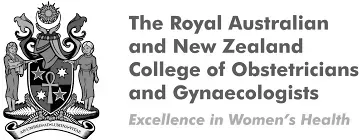Understanding Endometriosis: Symptoms, Diagnosis, and Treatment
Endometriosis is a condition that affects millions of women worldwide, yet it remains underdiagnosed and often misunderstood. This chronic condition can cause severe pain, affect fertility, and significantly impact a woman’s quality of life. In this blog post, we’ll explore what endometriosis is, its symptoms, how it’s diagnosed, and the available treatment options.
What is Endometriosis?
Endometriosis occurs when tissue similar to the lining of the uterus (the endometrium) grows outside the uterus. These growths, known as endometrial implants, can be found on the ovaries, fallopian tubes, outer surface of the uterus, and other pelvic organs. Unlike the tissue inside the uterus that is shed during menstruation, endometrial implants outside the uterus have no way to exit the body. This leads to inflammation, scarring, and the formation of adhesions, which are bands of scar tissue that can cause organs to stick together.
Symptoms of Endometriosis
The symptoms of endometriosis can vary widely among women. Some may experience mild symptoms, while others suffer from severe pain and other complications. Common symptoms include:
- Pelvic Pain: Often the most significant symptom, pelvic pain usually coincides with the menstrual cycle but can also occur at other times. The pain may range from mild to debilitating.
- Painful Periods (Dysmenorrhea): Women with endometriosis often experience intense cramping and pain during their periods, which can worsen over time.
- Pain During Intercourse: Endometriosis can make sexual intercourse painful, particularly during deep penetration.
- Pain with Bowel Movements or Urination: Some women experience pain when using the bathroom, especially during menstruation.
- Heavy Menstrual Bleeding: Endometriosis can cause heavy periods or bleeding between periods.
- Infertility: Endometriosis is a common cause of infertility. The condition can distort pelvic anatomy, create scar tissue, and interfere with the function of the ovaries, fallopian tubes, and uterus.
Diagnosis of Endometriosis
Diagnosing endometriosis can be challenging because its symptoms overlap with other conditions, such as irritable bowel syndrome (IBS) or pelvic inflammatory disease (PID). A definitive diagnosis is usually made through a laparoscopy, a minimally invasive surgical procedure in which a camera is inserted into the pelvis to look for endometrial implants. In some cases, imaging tests like ultrasounds or MRIs may be used to identify findings associated with endometriosis. The non-invasive methods of diagnosing endometriosis, such as ultrasounds or MRIs, are improving over time. However, they are operator dependent and should not be relied upon rule endometriosis out if you are symptomatic.
Treatment Options for Endometriosis
There is no cure for endometriosis, but various treatments can help manage symptoms and improve quality of life. The treatment plan depends on the severity of the symptoms, the desire for pregnancy, and the individual’s overall health. Common treatment options include:
- Pain Management: Over-the-counter pain relievers, such as nonsteroidal anti-inflammatory drugs (NSAIDs), can help alleviate mild to moderate pain. For more severe pain, prescription medications may be necessary.
- Hormonal Therapy: Hormonal treatments aim to reduce or eliminate menstruation, thereby slowing the growth of endometrial tissue. Options include birth control pills, progestins, gonadotropin-releasing hormone (GnRH) agonists, and the use of intrauterine devices (IUDs) that release hormones.
- Surgery: For women with severe endometriosis or those seeking to improve fertility, surgery may be recommended. This can often be done through laparoscopy (key-hole surgery) under the care of an experienced surgeon.
- Fertility Treatment: For women with endometriosis-related infertility, assisted reproductive technologies like in vitro fertilization (IVF) may be recommended. IVF can bypass some of the challenges caused by endometriosis, such as blocked fallopian tubes or scar tissue.
- Lifestyle and Complementary Therapies: In addition to medical treatments, some women find relief from symptoms through lifestyle changes, such as regular exercise, dietary adjustments, and stress management techniques. Complementary therapies like acupuncture and physical therapy may also be beneficial for some women.
Conclusion
Endometriosis is a complex and often painful condition that can have a significant impact on a woman’s life. Early diagnosis and a personalised treatment plan are key to managing symptoms and preserving fertility. If you suspect you have endometriosis or are struggling with symptoms, don’t hesitate to seek medical advice. With the right support and treatment, it’s possible to lead a fulfilling life and achieve your reproductive goals, even with endometriosis.
Endometriosis may be challenging, but understanding the condition and exploring your treatment options can help you take control of your health and well-being.






